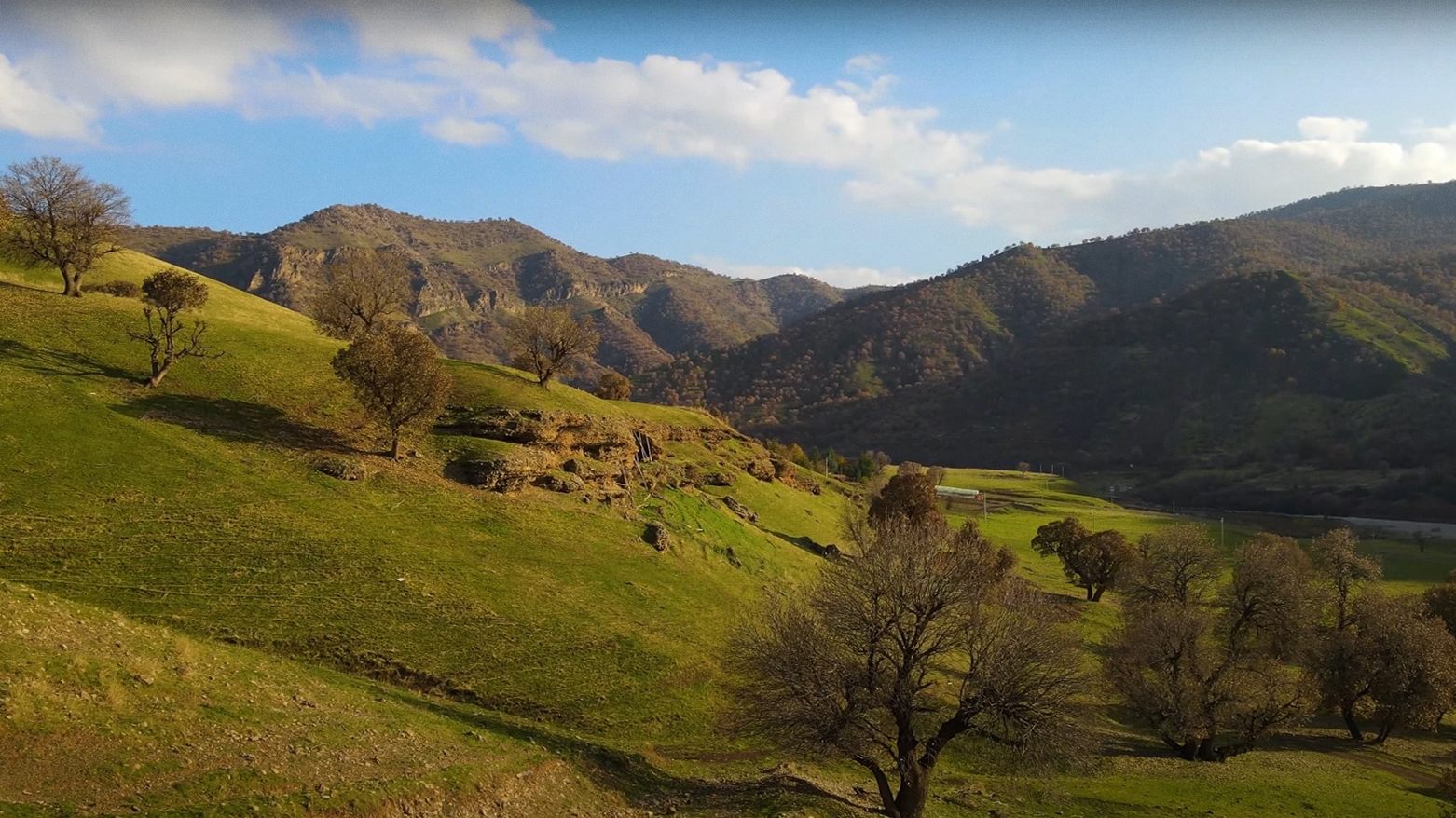Kurdistan’s Sharbazher Geopark Project Seeks Global Recognition with UNESCO Heritage Bid
The Sharbazher Geopark Project is pursuing UNESCO World Heritage status, a key step in the KRG's "Visit Kurdistan" initiative to attract global tourists. The project aims to protect the region's unique geology and history, transforming it into a major hub for tourism and research.

ERBIL (Kurdistan24) – In an initiative poised to place the Kurdistan Region on the global stage for natural and historical preservation, the Sharbazher Geopark Project is moving forward with an ambitious bid for UNESCO World Heritage recognition. This strategic endeavor, aimed at protecting and promoting the rich geological and cultural tapestry of the Sharbazher district, aligns perfectly with the Kurdistan Regional Government's (KRG) broader vision to transform the region into a premier international tourist destination, a goal encapsulated in the recently launched "Visit Kurdistan" initiative.
The project represents a significant step towards leveraging the Kurdistan Region's unique natural assets to diversify its economy and enhance its international profile.
Dr. Haval Abubakir, the Governor of Sulaimani, exclusively revealed to Kurdistan24 on Wednesday that a high-level committee of specialists has been formed at the University of Sulaimani to spearhead the scientific and technical aspects of the nomination. Complementing this, a project board has been established, chaired by the governor himself and including the mayors of Sharazur and Mawat, as well as the Director General of Tourism for Sulaimani province, ensuring a coordinated, multi-stakeholder approach.
According to Governor Abubakir, the academic committee has already identified 100 distinct locations of geological, environmental, and historical significance within the Sharazur region. This meticulous groundwork has been supported by direct engagement with UNESCO, whose teams have visited the area to assess its potential.
Currently, efforts are focused on preparing the extensive documentation and fulfilling the procedural requirements stipulated by UNESCO for registering the area as a global geopark. This critical work is being supervised by Dr. Fadhil Lawa from the University of Sulaimani, a testament to the strong academic backing of the project.
The governor highlighted the deep commitment of those involved, noting that so far, the individuals working on the project have been participating on a voluntary basis, with some essential resources provided.
However, to bring this grand vision to fruition, the project will require a dedicated budget allocated over a four-year period. Once the comprehensive application is prepared, a formal request for assistance and coordination will be made to the KRG, the Federal Government of Iraq, and the Presidency of the Federal Republic of Iraq, reflecting the project's national and regional importance.
The successful implementation of the Sharbazher Geopark Project is expected to bring about transformative changes for the area.
Governor Abubakir detailed a range of positive impacts, starting with robust environmental protection. The region will be designated a protected zone, where stringent environmental principles will be implemented to preserve its pristine nature.
Beyond conservation, the project is set to position Sharbazher as a globally important tourism destination and a vital center for international research in fields such as geology, agriculture, tourism, and biodiversity.
What makes the Sharbazher region particularly exceptional is its geological heritage. As the governor noted, one-third of the rock types that narrate the history of early humanity are present in this area. This unique feature alone is expected to give the region immense significance on a global scale, attracting scientists, historians, and tourists eager to explore the origins of human civilization.
This ambitious local project is a powerful component of the KRG's overarching strategy to develop a sustainable and thriving tourism sector.
This vision was formally articulated with the launch of the "Visit Kurdistan" initiative, a non-governmental foundation endorsed by Prime Minister Masrour Barzani, which aims to attract over 20 million tourists by 2035. The initiative seeks to showcase Kurdistan's stunning natural beauty and rich cultural heritage while developing the necessary infrastructure, from a 10-kilometer cable car project in Soran to integrated digital platforms for travel bookings.
The KRG's commitment to tourism is evident in a series of strategic investments and designations across the region.
The historic district of Akre was recently named the "Capital of Newroz," a move accompanied by a $150 million tourism development plan to transform the city into a major hub for cultural events and international visitors.
Similarly, the Soran Independent Administration has launched a five-year master plan to internationalize its tourism sector, building on its success in attracting nearly 1.5 million tourists annually and generating over $300 million in revenue.
Recognizing that a flourishing tourism industry requires the protection of its core assets, the KRG has also taken decisive steps to safeguard its historical and natural sites.
In response to recent acts of vandalism at landmarks like the Bahiri Cave in Zakho, Prime Minister Barzani ordered the establishment of a specialized "Tourism Police" force. This new entity, staffed by graduates of tourism departments, will be tasked with monitoring and protecting the region's more than three thousand tourist sites, ensuring a safe and welcoming environment for visitors.
The Sharbazher Geopark Project, therefore, is not an isolated effort but a cornerstone of a well-orchestrated, region-wide push to unlock the immense potential of Kurdistan's tourism sector.
By seeking UNESCO recognition, the project aims to secure international protection for a unique natural landscape while simultaneously creating a world-class destination that will contribute to the economic prosperity and cultural pride of the Kurdistan Region for generations to come.
